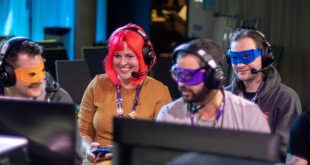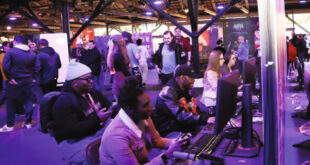 Dropping the last vowel in a word to effect a cool company name is so 2014, but when it comes to music licensing, CEO Paul Sampson insists Lickd is the future.
Dropping the last vowel in a word to effect a cool company name is so 2014, but when it comes to music licensing, CEO Paul Sampson insists Lickd is the future.
How accurate would it be to characterise Lickd as a kind of Shutterstock for music?
It is somewhat accurate. But Shutterstock isn’t licensing the biggest photographers in the world – Lickd is, on the contrary, licensing the biggest artists in the world. But the commercial model is not a million miles off. Lickd is the first company to ever look at a solution for content creators of all kinds whilst licensing music from major labels and publishers, including current music that’s in the charts.
Our unique software protects our users on the platform that they place music on, for example, YouTube. Platforms like YouTube have built in music recognition software that identifies popular music being used in content, and presumes that all music uses are some sort of infringement of copyright, therefore, persecuting the creator and attempting to police them out of earning revenue.
There’s an obvious benefit for video content creators – less licensing hassle, but what’s in it for the gaming industry?
Gaming is obviously an enormous industry, bigger than music and film combined. Any content vertical with that sort of reach has a huge platform, a huge audience to work with and promote music too.
Most of us could probably recall a song that we discovered through a game. For me, I remember the title tracks from ‘Tiger Woods Golf ’ and ‘NBA 2004’ when they were released on PlayStation, and this synergy has only grown from strength to strength for millions more as gaming has become the huge commodity it is today.
In terms of how Lickd got together with Fortnite and Epic Games; essentially music became part of their engagement strategy, and they started paying more attention to it. Senior teams were asking key questions like: ‘how can we work with artists’ and ‘what sort of artist does our audience want to hear within a game’?
With this comes complexities around licensing and demographics. Gamers who are also content creators often live stream their content or create highlights videos for YouTube. At Lickd, we already know that that in-video music on YouTube is an issue and so we collaborate with Fortnite to bridge that gap so that gamers can enjoy the wonderful events that Fortnite put on for them, while also being able to then promote and share that content in the ways that they normally would.
Whether this is for ancillary income or additional income on top of a salary, if content creation is a full-time job, Lickd protects creators on those platforms, to enable a more effective creation and lifecycle process for the content they’re publishing.
AI threatens to disrupt music creation as much as it has art and writing. What might be the impact of future AI applications on a business like Lickd and how are you preparing to meet the challenge?
There’s various ways that AI will impact music. It’s something we’re following closely and it would be foolish for anyone to suggest that any part of the music industry isn’t already seeing some element of business being affected directly by AI. The complete uptake won’t be imminent, but at some point creators will become of faith with tools that allow them to generate music through these new means for use in their videos. Once created, that music will still need to be licensed, and there will be commercial models that give users access to the tools and/or licensing opportunities for the music created by that tool.
In the metaverse, there will be music collaboration spaces and music production event areas or venues. Generative AI is useful for creating ‘music stems’, and building a sort of catalogue of music elements that can then be used by people collaboratively to start making an entire song – something that was not happening in the past.
An AI can continuously keep churning out new beats and new melodies and new riffs and new instrumental sounds, and people will get together to create music on the fly, and that will require AI generative tools at some scale. I think you’ll see things like musical skins and music ‘emotes’ where avatars might want their own soundtrack or music identifier. How do I know someone entered the room? Well, I just heard their music handle to signify they’re here. Like boxers have ring walks, there’ll be a version of that somewhere in the metaverse. We know that there are music metaverses and venues, and metaverse platforms based around music creation already, and there are others on the way.
A good example of this is Pixelynx, Deadmau5’s music based metaverse platform. He founded the platform, one that was completely based around the music, but then was acquired by Animoca Brands, a company with a broad portfolio of web3, blockchain and traditional games, which is a huge web3 holding company, so from launch to exit, Deadmau5 did very well out of the partnership.
How is Lickd positioned to capitalise on user-generated content as it starts to colonise new platforms – such as those we might collectively call “the metaverse”?
I think it’s important to outline that wherever there is opportunity for the music industry online, it will require some sort of micro licensing commercial model, and some sort of proprietary tech, either to enable the licensing or to protect the end user.
That’s where Lickd is perfectly positioned. Our mission is to democratise music for the world’s creators. Our first product looked at creators as video content creators, but as the world changes and the digital landscape evolves, creators will also include builders in the metaverse. We all know that the metaverse is inevitable. We’ve all been in it in some description as early as 15 years ago, when virtual meetings became incepted, and experiences like ‘The Sims’ and ‘Second Life’ were popular. But as time goes on, it will just start to play a bigger and bigger role in future generations’ lives.
With metaverse graphics and experiences improving as more focus is put on it, so do the expectations on how it sounds. I’ve been to virtual venues, often music themed virtual venues and heard stock music or music that I don’t recognise and that’s not adding to the experience. Whenever that happens, it’s a red flag for me. This all comes back to the complexities of music licensing, but it also tells me there’s an opportunity here and that opportunity is almost always taken by stock music companies on day one.
I see Lickd’s role here as the voice to help bridge that gap, exploring more ways we can coalesce in this ever-changing digital world. With the fragmented music industry and all the complexities around rights, we’re responsible in packaging it up in a way that is in the interests of songwriters and artists, but also to the betterment of the environment and that involves us building technology and bespoke commercial models. In the physical world, there are endless studies around how the right music choices in store can affect purchasing, and how different BPM’s can generate different behaviours with groups of users. It goes without saying that everything built in the metaverse is essentially a meet up spot of some description, whether it’s a retail outlet or a bar or a club environment, or just a place to hang out with friends. Most places in the real world use commercial music to create atmosphere, to create engagement, to encourage dwell time. And if the metaverse has any chance of succeeding, it needs to be able to replicate that real life experience.
The metaverse is very early on in its development, but it will eventually get there. And so the opportunity for the music industry is posing the questions to creators like, ‘how can we help the metaverse sound good?’ ‘How can we all benefit from that?’ and ‘how can we enable it by building proprietary technology and creating the viable commercial model.
We’ve worked with Vegas City to pilot Chorus, which is the world’s first metaverse background music player. It enables users to select a playlist to be played in their venue, but also ensures that only those attendees are hearing it.
The challenge for us was how do we build a music player that gives the venues choice and can read vectors, coordinates and blueprints in the metaverse. When we see an opportunity like that, we ask, how can we solve this problem? What’s the opportunity for everyone involved? Often you’ll find that there’s a win-win for everyone. When you see a win for everyone in a value chain, it becomes a no brainer.
Aside from bringing on board more partners, are there any plans to expand the service in other directions? Are there still deals to be done?
Over the past two years, we’ve already entered into partnerships with the likes of Warner Music Group (in August 2020). And in September 2021, we secured £5.1 million ($7m) in funding from investors including WMG and Fortnite creator Epic Games, which bought D2C music platform Bandcamp in March.
From inception, we’ve built ourselves out as an industry platform that is made up of popular music from over 10,000 labels and publishers. Our portfolio and catalogues of music demonstrate this, having key industry players like Universal, Warner, Sony, BMG and Kobalt on board. But there are always more deals to be done, as music consumption grows and demands increase.
At Lickd, we also do lots of work with independent distributors. There’s around 1.4 million songs on the Lickd at present, but incredibly, another 6 million have been delivered and are waiting to go live. The vast majority of them will be emerging acts and we certainly do our best to help and encourage discovery on the platform.

 MCV/DEVELOP News, events, research and jobs from the games industry
MCV/DEVELOP News, events, research and jobs from the games industry




